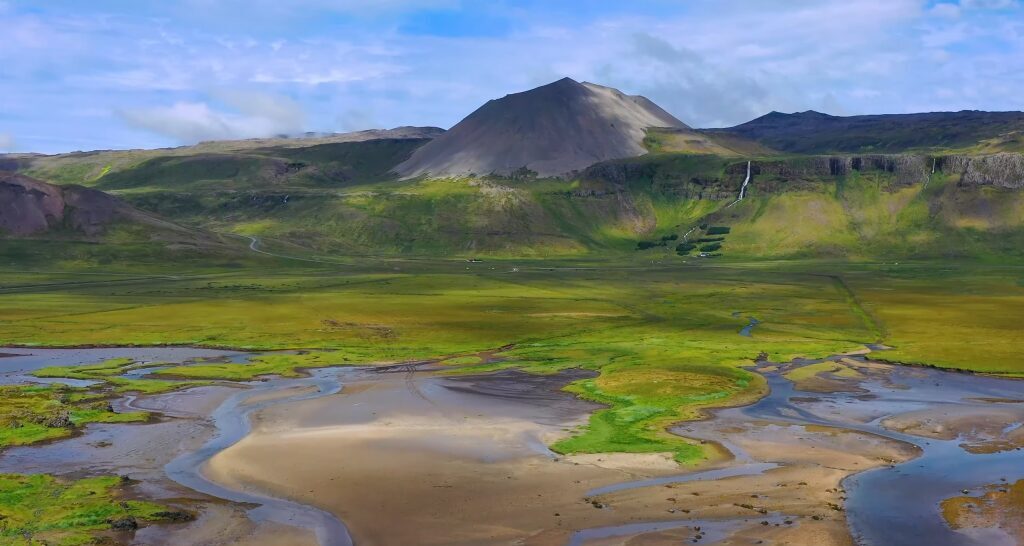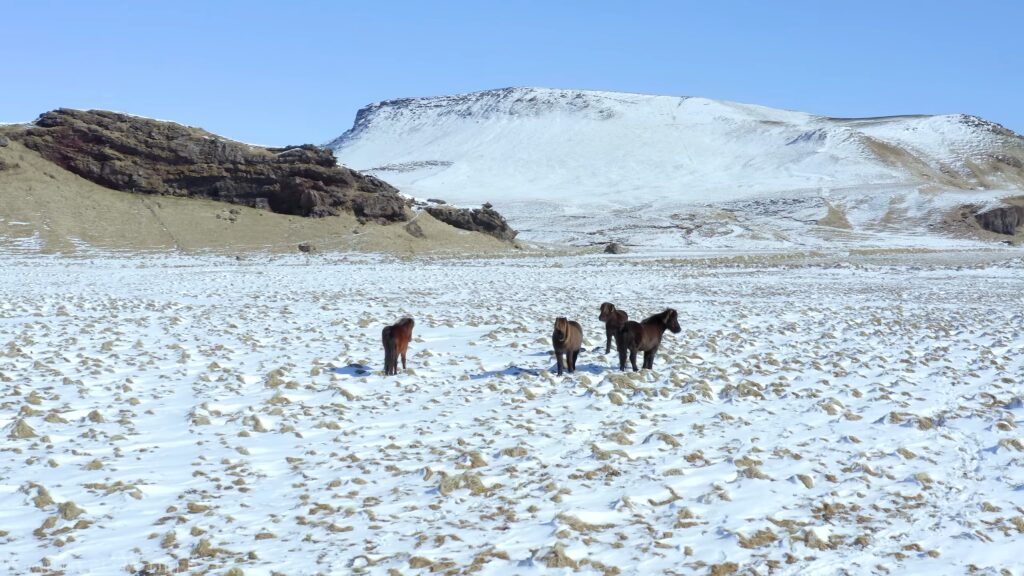Did you know that Iceland boasts the highest per capita ratio of rental cars to residents in the world? This small Nordic island nation, renowned for its otherworldly landscapes and adventure-filled experiences, welcomes an astounding number of visitors each year. As a U.S. citizen planning a trip to Iceland, it’s crucial to be informed and prepared to ensure a safe and successful journey.
Stepping onto the enchanting shores of Iceland can feel like entering a different world altogether. The country’s breathtaking natural wonders, from cascading waterfalls to towering glaciers, have captivated the hearts and imaginations of travelers from around the globe. However, with unique landscapes come unique challenges, and that’s where the U.S. Department of State’s travel advisory for Iceland comes into play.
Key Takeaways
- The U.S. Department of State provides a comprehensive travel advisory for Iceland, covering safety, security, entry requirements, and other important information.
- Travelers are advised to exercise normal precautions, enroll in the Smart Traveler Enrollment Program (STEP), and follow the Department of State on social media for updates.
- The advisory highlights health and safety considerations, including COVID-19 testing and vaccination requirements, medical care, and adventure travel precautions.
- Volcano alerts and demonstration alerts are also covered, as these can impact travel plans.
- Comprehensive travel resources and information are provided, such as the Country Security Report, CDC travel health data, and a traveler’s checklist.

Understanding the Iceland Travel Advisory
When planning a trip to Iceland, it’s crucial to familiarize yourself with the latest travel advisory from the U.S. Department of State. This advisory provides essential guidance for Iceland Travel Advisory, helping ensure a safe and enjoyable experience for U.S. citizens. The advisory emphasizes the importance of exercising normal precautions, enrolling in the Smart Traveler Enrollment Program (STEP), and staying informed through the Department of State’s social media channels.
Exercise Normal Precautions
The U.S. Department of State advises U.S. citizens to exercise normal precautions when traveling to Iceland. This means being aware of your surroundings, taking reasonable security measures, and using common sense. By remaining vigilant and staying alert, you can minimize risks and enjoy the Iceland Attractions to the fullest.
Enroll in STEP Program
To ensure you receive important updates and assistance in an emergency, the advisory recommends enrolling in the Smart Traveler Enrollment Program (STEP). STEP allows the U.S. Embassy to contact you with safety information and provide support if needed, making it a valuable resource for Iceland Travel Tips.
Follow State Department on Social Media
In addition to enrolling in STEP, the advisory suggests following the U.S. Department of State on social media platforms like Facebook and Twitter. This will keep you informed about the latest travel updates and advisories for Iceland Safety, allowing you to stay up-to-date on any important developments during your trip.
Health and Safety Considerations

The Iceland travel advisory from the U.S. Department of State provides important information on the health and safety precautions that travelers should be aware of when visiting Iceland. This includes guidelines and recommendations regarding COVID-19 testing and vaccination, access to medical care and insurance, prescription medications, and adventure travel precautions.
COVID-19 Testing and Vaccination
The advisory notes that COVID-19 PCR and antigen tests are available in Iceland, with results typically provided within 72 hours. However, travelers should be prepared to pay for these tests, as they are not covered by the Icelandic medical system for non-residents. Additionally, the advisory recommends that travelers ensure they are up-to-date on all recommended vaccinations before traveling to Iceland, as this helps protect both the individual and the broader community.
Medical Care and Insurance
Visitors to Iceland should also be aware of the medical care options available and the importance of having comprehensive travel insurance. The advisory advises that medical care in Iceland can be expensive, and travelers without insurance may face significant out-of-pocket costs. It is recommended that travelers research and secure appropriate health and travel insurance coverage before their trip to Iceland.
Prescription Medications
Travelers who require prescription medications should ensure they have enough to last the duration of their trip, as well as any necessary documentation from their healthcare provider. The advisory also recommends checking with the Icelandic Embassy or Consulate to understand any local regulations or restrictions regarding the import of prescription medications.
Adventure Travel Precautions
Iceland is renowned for its stunning natural landscapes and outdoor adventure activities, such as hiking, glacier trekking, and whale watching. The travel advisory cautions that these activities may pose additional risks and that travelers should exercise appropriate safety precautions, including researching tour operators, wearing proper gear, and heeding any warnings or instructions from local authorities.
Iceland Travel Advisory

The Iceland travel advisory from the U.S. Department of State includes important information on specific alerts and warnings that travelers should be aware of. These alerts and warnings cover a range of potential disruptions, from increased volcanic activity to public demonstrations, that could impact travel plans.
Volcano Alerts
The U.S. Embassy in Reykjavik has issued several volcano alerts in recent years, notifying travelers of heightened volcanic activity in Iceland. These alerts provide important information on potential travel disruptions, such as airport closures or flight cancelations, due to the presence of volcanic ash or other hazardous conditions. Travelers should monitor these volcano alerts closely and follow any instructions or recommendations from local authorities.
Demonstration Alerts
The Iceland travel advisory also includes information on demonstration alerts, which are issued to inform travelers of any planned or ongoing public demonstrations or protests. These alerts are important for travelers to be aware of, as demonstrations can sometimes lead to disruptions in transportation or access to certain areas. By staying informed and exercising caution, travelers can help ensure their safety and minimize any potential impact on their itinerary.
By being aware of the volcano and demonstration alerts outlined in the Iceland travel advisory, U.S. citizens can better prepare for and respond to any travel disruptions or safety concerns that may arise during their trip to Iceland. Adhering to the guidance provided in the advisory can help ensure a safe and successful journey.
Travel Resources and Information

The Iceland travel advisory provided by the U.S. Department of State offers a wealth of resources and information for U.S. citizens planning a trip to Iceland. One of the key resources highlighted in the advisory is the
Country Security Report
for Iceland, which provides detailed insights into the country’s security environment and any potential threats or concerns that travelers should be aware of.
In addition to the Country Security Report, the advisory also encourages travelers to review the
CDC Travel Health Information
for Iceland. This resource covers important health considerations, such as recommended vaccinations, disease outbreaks, and any necessary medical precautions travelers should take to ensure a safe and healthy trip.
Finally, the Iceland travel advisory includes a comprehensive
Traveler’s Checklist
that outlines essential steps and information for U.S. citizens to review before, during, and after their trip to Iceland. This checklist covers a range of topics, from passport and visa requirements to emergency contacts and local laws and customs, helping travelers prepare and navigate their Iceland vacation or adventure.
Conclusion
In conclusion, the Iceland travel advisory from the U.S. Department of State provides essential information and guidance for U.S. citizens planning to visit Iceland. The advisory covers a range of important topics, including safety and security, health considerations, specific alerts and warnings, and valuable travel resources. By reviewing and following the advice outlined in the advisory, travelers can help ensure a safe and successful trip to Iceland.
Whether you’re planning an adventure, a vacation, or a business trip, the Iceland travel advisory is a valuable tool to consult before and during your travels. By staying informed and prepared, you can make the most of your Iceland experience and enjoy all the natural wonders and cultural richness the country has to offer.
With the comprehensive information provided in the Iceland travel advisory, U.S. travelers can feel confident in navigating the country’s unique challenges and ensuring a memorable and safe journey. By prioritizing their safety and well-being, travelers can fully immerse themselves in the Iceland adventure and create lasting memories.
FAQ
What does the U.S. Department of State’s Iceland travel advisory cover?
The U.S. Department of State’s Iceland travel advisory provides guidance for U.S. citizens traveling to Iceland, covering safety, security, entry requirements, and other important information to help ensure a safe and successful trip.
What precautions does the advisory recommend for travelers to Iceland?
The advisory recommends that U.S. citizens exercise normal precautions when traveling to Iceland, which includes being aware of your surroundings, taking reasonable security precautions, and using common sense. The advisory also suggests enrolling in the Smart Traveler Enrollment Program (STEP) and following the U.S. Department of State on social media for important updates and safety information.
What health and safety considerations are highlighted in the Iceland travel advisory?
The advisory provides information on COVID-19 testing and vaccination requirements, access to medical care and insurance, and precautions for adventure travel in Iceland. Travelers should be prepared to pay for COVID-19 tests, as they are not covered by the Icelandic medical system for non-residents.
What specific alerts and warnings are mentioned in the Iceland travel advisory?
The advisory includes information on volcano alerts and demonstration alerts that travelers should be aware of. The U.S. Embassy in Reykjavik has issued several volcano alerts in recent years, notifying travelers of increased volcanic activity and potential disruptions to travel.
What travel resources and information are provided in the Iceland travel advisory?
The advisory encourages travelers to review the Country Security Report for Iceland, which offers detailed information on the country’s security environment and any potential threats. It also recommends consulting the CDC’s travel health information and using a traveler’s checklist to ensure a safe and successful trip.
Source Links
- https://travel.state.gov/content/travel/en/traveladvisories/traveladvisories/iceland-travel-advisory.html
- https://travel.state.gov/content/travel/en/international-travel/International-Travel-Country-Information-Pages/Iceland.html
- https://is.usembassy.gov/u-s-citizen-services/security-and-travel-information/

